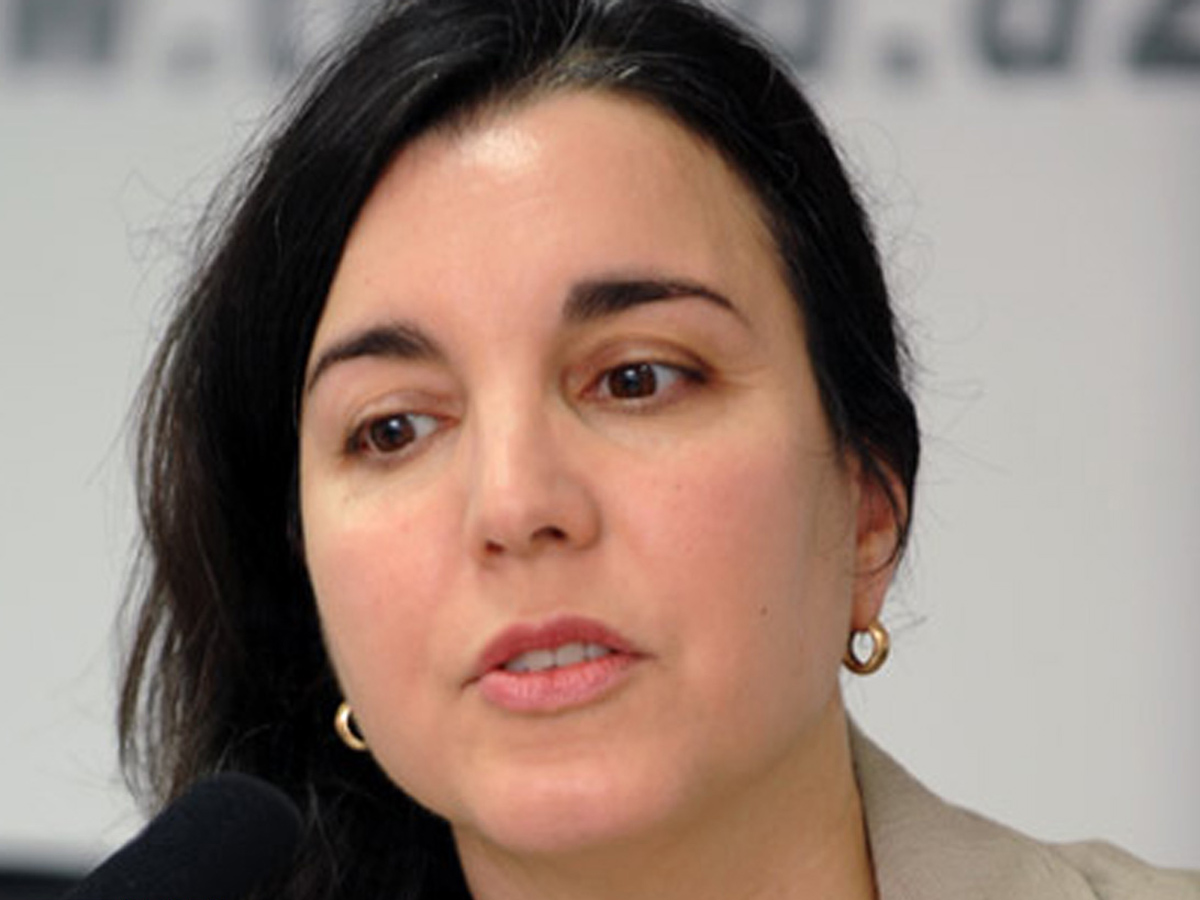Baku, Azerbaijan, Feb.19
By Elena Kosolapova - Trend:
Given the geopolitical events taking place in the region, now it's opportune moment to draw the attention of the West to Nagorno-Karabakh issue, the British Transatlantic and Caucasus Studies Institute director Ziba Norman said.
"What our journalists need here is an introduction, or re-introduction, to the situation," Norman told Trend. "Now, on the eve of the memorial of the Khojaly Massacre, coupled with the events in Crimea, it may be an excellent moment to enact such a series. In short, agenda shapers could be interested if we link it to other geopolitical trends with which they have obvious concerns."
"In all areas of political activity we see double standards in operation," she said. "Looking at the significance of the Armenian lobby will only explain half the problem. What is needed here is a new approach to highlighting the facts."
In addition, she said that the US and EU are distracted by major events on their doorstep. Norman went on to add that if they can be brought to understand the relationship between the frozen conflict in Nagorno-Karabakh and how it relates to their immediate and pressing concerns, then the political will necessary to shift the dialogue could actually be created.
"Thus the fact that they're distracted by other concerns may make this an opportune moment to get attention," Norman said. "So the very reason why Nagorno-Karabakh is being ignored can be used as bait to reopen the debate in a new way."
This really is urgent, violence on the line of contact and Russian geopolitical maneuvering make this time truly critical, according to her.
"At a time of genuine hostility between Russia and the West, and especially because of sanctions imposed on Russia, the security of the BTC must be considered," she said. "It must be made clear that a settlement should be seen as a priority."
The expert said that one of the most basic problems regarding Nagorno-Karabakh is a lack of awareness.
"There is very little coverage in our media, so the true dynamics of the situation, the importance of the region for both the US and EU tends to be underestimated," she said.
In an attempt to redress this, Norman suggests a joint project, which would include a series of meetings and a publication, here in London, Brussels, Baku and maybe Istanbul. These publications should present the facts in an unbiased manner, together with scenarios of possible futures for the region, depending on which course of action is followed, according to her. There are defined methodologies for this type of scenarios work, she said.
"The aim is to show why Nagorno-Karabakh cannot be left in limbo," said Norman.
The conflict between Armenia and Azerbaijan began in 1988 when Armenia made territorial claims against Azerbaijan. As a result of the ensuing war, in 1992 Armenian armed forces occupied 20 percent of Azerbaijan, including the Nagorno-Karabakh region and seven surrounding districts.
The two countries signed a ceasefire agreement in 1994. The co-chairs of the OSCE Minsk Group, Russia, France and the US are currently holding peace negotiations.
Armenia has not yet implemented the UN Security Council's four resolutions on the liberation of the Nagorno-Karabakh and the surrounding regions.
---
Follow the author on Twitter: @E_Kosolapova






